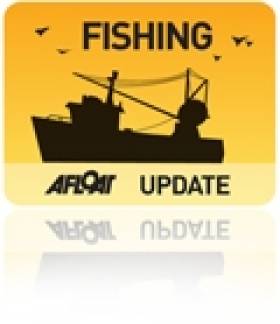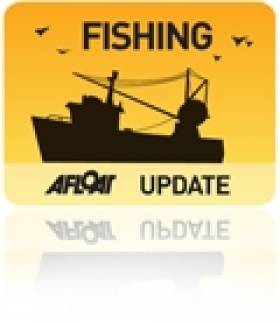Displaying items by tag: discards
Damanaki Promises 'Level Playing Field' in Common Fisheries Policy Review
The European Union's maritime affairs commissioner has promised a "level playing field" during the review of the Common Fisheries Policy (CFP), The Irish Times reports.
As previously reported on Afloat.ie, Maria Damanaki was in Dublin on Thursday to discuss reform of the policy with Irish stakeholders.
She admitted that Ireland had suffered under the current policy, which has led to overfishing in Irish waters by other EU member states such as Spain.
The commissioner said that better maritime planning and protection of "small-scale fisheries" were fundamental to the new CFP.
But she denied that Ireland's situation would worsen under the new proposals, which include concessions on transferable quotas that critics - including Minister for the Marine Simon Coveney - fear would see multinationals buying up Irish fishing rights.
She said similar concessions had worked in Denmark, the US, Australia and New Zealand, adding that the system is designed to compensate those who want to leave fishing without straining the EU's finances.
Damanaki also discussed encouraging the development of offshore aquaculture to combat rising imports of seafood, and her commitment to ending the practice of fish discards - which may also involve a programme to provide lower-income individuals with cheaper fish.
The Irish Times has more on the story HERE.
Significant EU Fishing Reforms On The Way
Fishing boats will have to land their entire catch - whether or not the fish are in a saleable condition - according to new European Union proposals.
The Guardian reports that EU fisheries commissioner Maria Damanaki has pledged to bring and end to the "nightmare of discards" in response to the high-profile campaign against the practice of fishermen dumping dead fish from their catch.
Half of all fish in the North Sea - and up to two-thirds in other areas - are thrown back under the quota system implemented under the EU's common fisheries policy.
Damanaki said that her proposed reforms to the system would be phased in over a number of years pending approval by the European parliament.
She acknowledged the concerns of fishermen, who fear the value of their catch will plummet if they are not allowed the choice of which fish to keep, but said they would benefit in the long term as ending discards would help to protect stocks of commercial fish.
Meanwhile, Irish conservation groups have joined a worldwide campaign to put the environment at the heart of the EU's fishing reforms.
The Irish Times reports that Birdwatch Ireland, Coastwatch Europe, the Irish Wildlife Trust and Irish Seal Sanctuary have all signed up to the Ocean 2012 initiative, which hopes to work with the fishing industry to find a balance that preserves both the ecosystem and fishermen's livelihoods.

























































